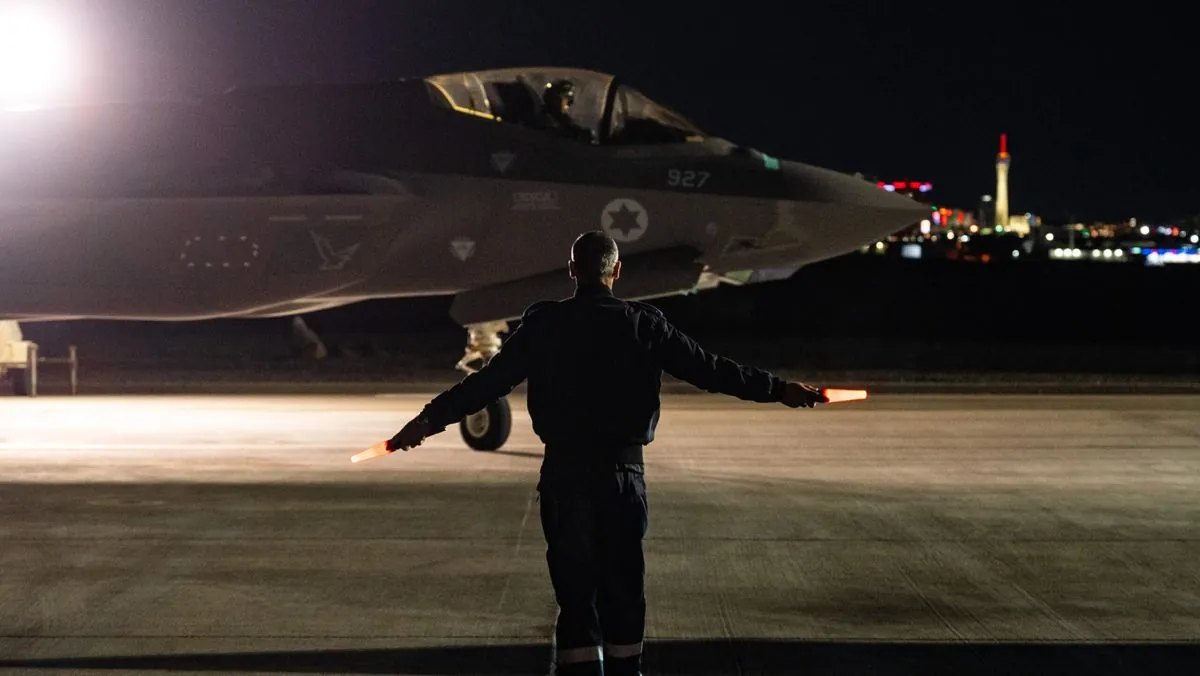In a significant escalation of tensions, Israeli forces launched preemptive strikes against Hezbollah targets in Lebanon during the early hours of August 25, 2024. This operation, reminiscent of Israel's past military strategies, aimed to prevent a planned attack by the Lebanese militant group on Israeli intelligence facilities.
According to Israeli intelligence sources, Hezbollah was preparing a major missile and drone assault on the Glilot base near Herzliya, where key Israeli intelligence units are located. The planned attack was reportedly scheduled for 5 am, targeting an area that houses the headquarters of Mossad and several military intelligence units.
The Israeli air force conducted simultaneous attacks on thousands of targets across Lebanon, catching Hezbollah off guard. In response, the militant group fired hundreds of rockets into Israel, causing scattered damage and injuries. This exchange marks a significant escalation in the ongoing conflict between Israel and Hezbollah, which has been launching rockets into Israel since October 8, 2023.
Hezbollah claimed its planned attack was in retaliation for the killing of its commander, Fuad Shukr, in Beirut last month. Shukr was a high-ranking military leader wanted by the United States for his involvement in the 1983 Beirut barracks bombings, which resulted in the deaths of 241 U.S. Marines and 58 French soldiers.
The current situation draws parallels to past conflicts in Israel's history. The Yom Kippur War of 1973, which began exactly 50 years before the October 7, 2023 attacks, saw Israel caught off guard by a coordinated assault from Egypt, Syria, and Lebanon. Similarly, the recent Hamas attack on October 7 exposed vulnerabilities in Israel's intelligence and defense systems.
"They say we must be dead and we say we want to be alive. Between life and death, I don't know of a compromise."
This statement encapsulates the fundamental conflict between Israel and its adversaries, including Hezbollah, which was established by Iran with the primary goal of opposing the Jewish state.
Israel's recent strategic shift, marked by more aggressive actions against its enemies, is evident in the assassinations of key figures such as Mohammad Deif of Hamas and Ismail Haniyeh in Tehran. These operations, along with the recent strikes against Hezbollah, demonstrate Israel's renewed focus on deterrence and preemptive action.
The Israeli military leadership appears to be drawing inspiration from the Six-Day War of 1967, which saw Israel launch surprise attacks that decisively altered the regional power dynamics. This approach aligns with the principles set forth by Israel's first Prime Minister, David Ben-Gurion, who emphasized the need for swift, decisive action on enemy territory.
As tensions continue to escalate, the international community watches closely to see if these preemptive strikes will deter further aggression from Hezbollah and Iran, or if they will lead to a broader conflict in the region. The coming days and weeks will be crucial in determining the long-term implications of Israel's strategic shift and its impact on regional stability.
